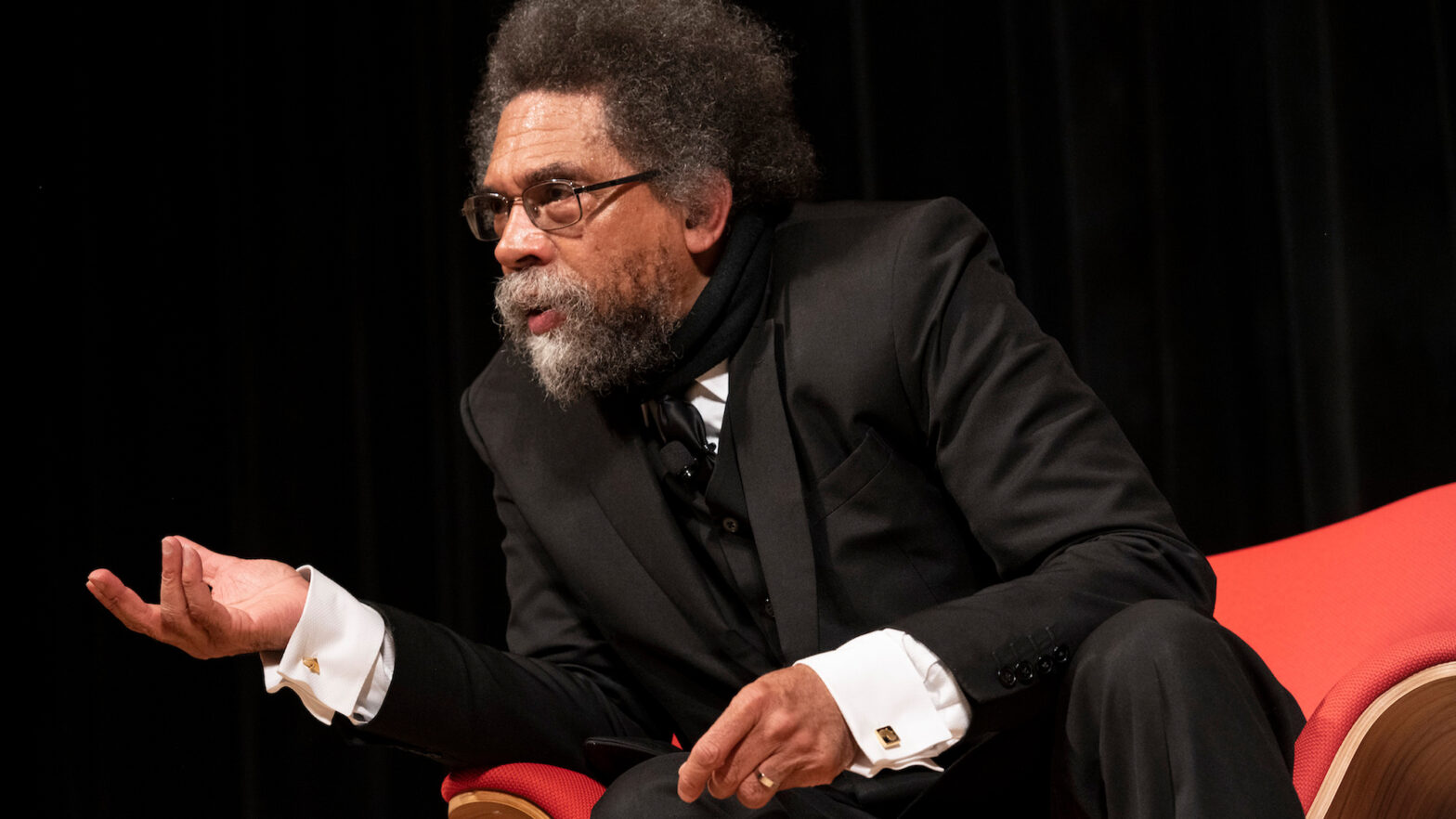The American icon and philosopher spoke to a packed audience of visitors and students on March 24.
The atmosphere inside the 12th Street Auditorium at The New School was electric on March 24, as visitors and students poured in to watch one of the world’s most insightful minds take the stage. While the event began at 4:30 p.m., by 4:15 p.m. there was not a single seat to spare.
Cornel West, an esteemed speaker and New School for Social Research Inaugural Presidential Visiting Scholar, is best known as an American philosopher, political activist and author of best selling classic books “Race Matters” and “Democracy Matters.”
In New School President Dwight McBride’s introduction of the event, “Philosophy in Our Time of Imperial Decay,” he lauded West as his former mentor, and noted that this lecture was the first public, in-person lecture he had attended since taking his position on April 16, 2020.
The day before, West had delivered two lectures to New School students, and had met with graduate philosophy students for open discussion.
“The bluesman in the life of the mind who teaches us that in the face of catastrophe we require courage, that in the face of catastrophe we require compassion, that in the face of catastrophe we require vision and just a little bit of P-Funk,” New School for Social Research Hans Jonas Professor of Philosophy Simon Critchley introduced West as. “Uncut P-Funk.”
West promptly took to the stage and began his lecture. The doctor praised the history of The New School and expressed his joy to see former student McBride as “the captain of the ship.” West graciously took the time to introduce the audience to his family members, who sat at the front row of the auditorium.
Central to the lecture was the concept of giving, accepting and spreading love.
“If all you’ve got to offer is just justice and you’re not doing it because you really love and have a caring concern about the people catching hell — it’s just a lifestyle choice,” West said. “Not a fundamental way of being in the world.”
Entranced by his words, the audience awarded their full attention to West as they cheered.
West spoke about topics including America’s lack of guilt for their involvement in military conflicts in Vietnam, Iraq, Yemen, the necessity of solidarity between groups facing hatred and the importance that we are all human beings capable of being “love warriors.”
West described musicians, philosophers and artists as “love warriors” for their generations.
West praised, “the blues in Aretha [Franklin], the blues in [Martin Luther King Jr.], the blues in Billie [Holiday]. Not as entertainers but the persons who decide to be love warriors in their artistry,” he said. “Wounded healers in their artistry.”
He spoke about gaining courage to face oppression while living in a moment in time where the commoditization and marketization of society makes it difficult to have memories of genuine integrity.
“The healing of our nation has everything to do with how seriously we take our quest for truth, and beauty, and goodness, and justice,” West said. “All persons, all colors and genders and sexual orientations can contribute to the quest for those particular ends and aims by taking very seriously the variety of the voices raised, and the examples enacted and the movements created.”
West emphasized the importance of what he called “swing” in this quest for healing.
“And in the end … that still might not be enough! So what? We go down swinging,” he said. “And I come from a tradition that says with all this style and smile: ‘It don’t mean a thing if it ain’t got that swing,’ that’s nobility at its height.”
Afterwards, Critchley opened the floor up to questions and comments for West. Students came up to the microphones placed on each side of the stage. Their questions ranged from topics of righteousness to how to deal with family members who are stuck in colonized mindsets. One New School student showed off his tap dancing skills for West to show appreciation for “the swing” comment West had finished his speech with.
I got the chance to speak with West at the end of the event. He embraced me in a hug as I told him that my grandmother had marched on Washington and he exclaimed I was the “granddaughter of a freedom fighter!” He urged me to continue the movement and legacy.








Leave a Reply